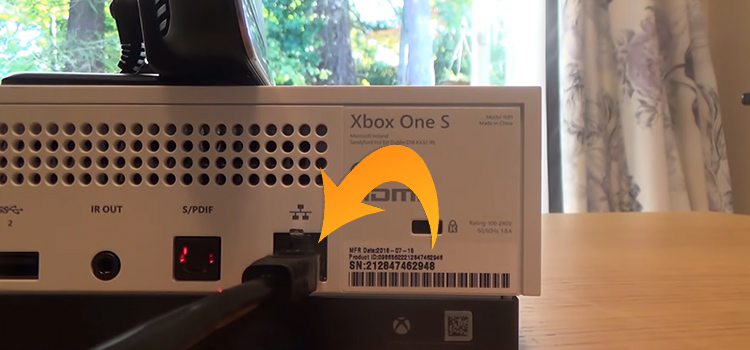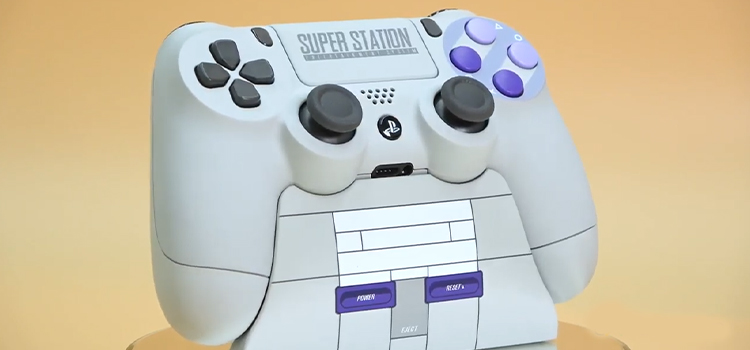Does The Motherboard Matter For Gaming? | Complete Explanation
As a motherboard holds all the crucial components of a PC, it is determined as the skeleton of the computer. But there is a common question that whether the motherboard matters for gaming.
The accurate answer is – the motherboard doesn’t affect gaming directly, but passively it does matter for gaming. A motherboard is as important to gaming as the soil is to a tree. Just as trees depend on different elements of the soil, gaming depends on the components of a motherboard.
In this article, we have discussed whether the motherboard matter for gaming or not; And if it does, then how is it? So, without wasting any more of your valuable time, let’s quickly learn some facts between motherboards and gaming.

What Components Matter For Gaming?
Before explaining how a motherboard affects gaming, let’s briefly discuss the components that matter for gaming. Below is the list of the peripheral components that are required for gaming:
- Central Processing Unit (CPU)
- Graphics Processing Unit (GPU)
- Memory (RAM)
- Storage
- Power Supply Unit (PSU)
- System cooling
- Total number of PCIe lanes
For gaming, you’ll need a good CPU, GPU, RAM, Storage, Cooling system, and proper power supply. These directly affect gaming. But these all components are attached to the motherboard and the quality and service of all these components directly depend on the motherboard.
Let’s elaborate below.
Is Motherboard Important For Gaming?
Generally, a motherboard has no effect on gaming. Maybe that’s why most gamers focus on other components like CPU, RAM, and GPU for gaming.
Yes, it is true that gaming doesn’t depends on the motherboard rather it depends on the other components of the motherboard. But the components fully depend on the motherboard.
Because if the motherboard is unable to support good peripheral components, your PC will become incompatible with most high-end games. So, passively, a motherboard is also important for gaming.
How Does The Motherboard Affect Gaming?
To play games on a PC, it needs to meet the gaming requirements and a motherboard determines whether it is able to support the required components or not. Thus, makes motherboards important for gaming. Let’s explain the factors of how a motherboard affects gaming.
Number of PCIe lanes
More PCIe lanes mean the motherboard has more PCIe slots, SATA slots, or M.2 slots. The chipset of a motherboard determines how many PCIe lanes it would have. If a motherboard has more PCIe lanes, then you can add more devices on the motherboard that is required for gaming.
On the contrary, if a motherboard has limited PCIe lanes, then you will be unable to add more devices that was necessary for gaming and thus, it will affect your gaming experience. Here you can see the difference in performance depending on the number of PCIe lanes:
| Number of PCIe lanes | Performance |
| 28 | High |
| 24 | High |
| 16 | Mid-Range |
| 14 | Mid-Range |
| 12 | Budget |
| 6 | Low |
| 4 | Low |
The version of PCIe lanes
The throughput rate (speed) of the PCIe lanes depends on the PCIe version. The performance of gaming components especially the GPU completely depends on the version of the PCIe lanes. And the chipset of a motherboard determines the PCIe version of the PC. Thus, the motherboard also indirectly affects gaming performance.
For example, if your motherboard has PCIe v4.0 standard, then your SSD can reach the speed of 2000 MB/s from that PCIe slot. But if the PCIe version is 2.0, then your SSD will only run at 500 MB/s.
You can see the speed of different PCIe lanes in the table below:
| PCIe Version | x1 (GB/s) | x2 (GB/s) | x4 (GB/s) | x8 (GB/s) | x16 (GB/s) |
| 1.0 | 0.250 | 0.500 | 1.000 | 2.000 | 4.000 |
| 2.0 | 0.500 | 1.000 | 2.000 | 4.000 | 8.000 |
| 3.0 | 0.985 | 1.969 | 3.938 | 7.877 | 15.754 |
| 4.0 | 1.969 | 3.938 | 7.877 | 15.754 | 31.508 |
| 5.0 | 3.938 | 7.877 | 15.754 | 31.508 | 63.015 |
| 6.0 | 7.877 | 15.754 | 31.508 | 63.015 | 126.031 |
Overclocking Capability
Overclocking the CPU or GPU is the key to boosting the gaming performance of a PC. If you are an overclocker, you already know that you have to increase the voltage of the component like a CPU or a GPU to increase its clock speed. To stabilize this higher voltage, your motherboard must need to have a decent number of powerful VRMs (Voltage Regulator Modules).
Budget motherboards don’t come with powerful VRMs and some of them have only a few VRMs that aren’t enough to overclock your CPU or GPU. Thus, the motherboard is important for gaming.
SLI Or Crossfire Support
To get the best gaming experience, your computer needs to have SLI or a Crossfire multi-GPU setup. It allows a computer to support multiple GPUs.
Many budget motherboards such as the AMD A-series and Intel H and B series, do not support SLI or Crossfire Multi-GPU.
If your motherboard also doesn’t support SLI, then you won’t connect another GPU to your PC and this is how the motherboard will affect your gaming experience.
Supported CPU
Gaming mainly depends on the Central Processing Unit (CPU) of a computer and a motherboard determines what version of CPU it supports. For example, a motherboard that supports an octa-core processor is far better than a motherboard that supports only dual-core processors.
Number of RAM Slots
The number of slots determines how many RAM sticks you can install on your gaming rig. The mITX and mATX motherboards contain 2 RAM slots while a standard ATX motherboard has 2 to 4 RAM slots.
If a motherboard has fewer RAM slots than 4, then it is not a wise choice for gaming. Because if you want to get a better gaming performance on your PC you may need more RAM sticks and to use more RAM sticks, you’ll need a good motherboard.
Additional Connectors & Ports
Modern gaming PCs come with a number of USB ports and other peripheral ports as gaming PCs require connecting multiple gaming devices. Again, gaming keyboards often come with two USB connectors.
Ordinary motherboards may not have more than 3 USB ports as you may face difficulties connecting your Headset, or controller along with your keyboard and mouse.
So, that’s how a motherboard affects the gaming experience passively.
FAQs (Frequently Asked Questions)
How Do I Know If My Motherboard Is Good for Gaming?
For gamers, it is essential to have at least one full-speed PCI Express x16 slot on their motherboard. If you wish to connect multiple cards, you will require multiple such slots. If your motherboards provide standard PCI slots and smaller PCI Express slots to accommodate other cards, such as sound cards, Wi-Fi adapters, and other expansion options for enhanced connectivity, then it is suitable for gaming.
What Type of Motherboard Is Best for Gaming?
When it comes to investing in a gaming motherboard, there isn’t a definitive answer to what is right or wrong. Ultimately, the decision depends on your personal preferences and budget. You can find plenty of gaming motherboards with different features. Some of them have enhanced audio quality, some of them look aesthetic, and some of them have expanded expansion options. It’s up to you which one is your preference.
Can the Motherboard Affect Gaming Performance?
While motherboards do not have a direct impact on gaming performance, they can indirectly affect component performance in certain ways. For example, if a motherboard only supports PCIe 2.0, graphics cards that support PCIe 3.0 may experience reduced performance. This implies that older motherboards may not work optimally with newer graphics cards, leading to potential compatibility issues and decreased performance.
Does It Matter What Motherboard You Get?
A suitable motherboard enhances the performance of your components, resulting in a smoother gaming experience and faster game loading. The type of motherboard you choose can have an impact on the performance of your graphics card and processor. While the motherboard itself doesn’t directly affect the framerate, it contributes to overall PC responsiveness and significantly improves game loading times.
Conclusion
After reading all the evidence for the necessity of a motherboard in gaming, we hope now you’ve understood that a motherboard matters for gaming passively. So, while developing or making a new gaming rig, you must have to choose a suitable motherboard besides other suitable components like CPU, GPU, RAM, and PSU. Hopefully, you’ve got your answer from this article. Thanks for reading.
Subscribe to our newsletter
& plug into
the world of technology




